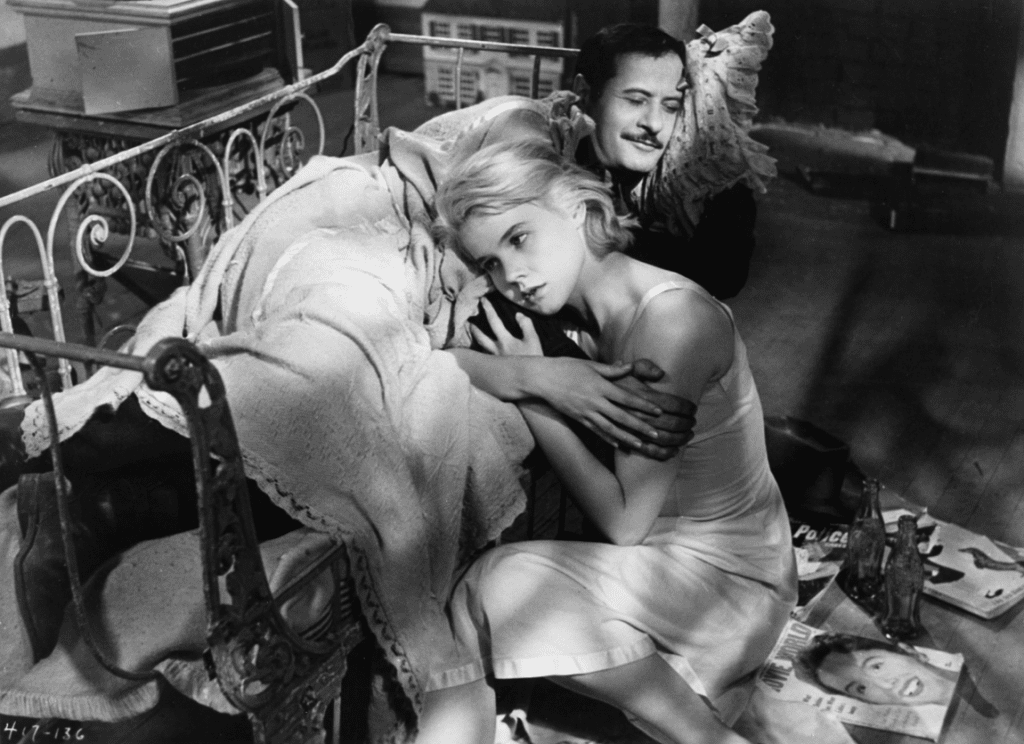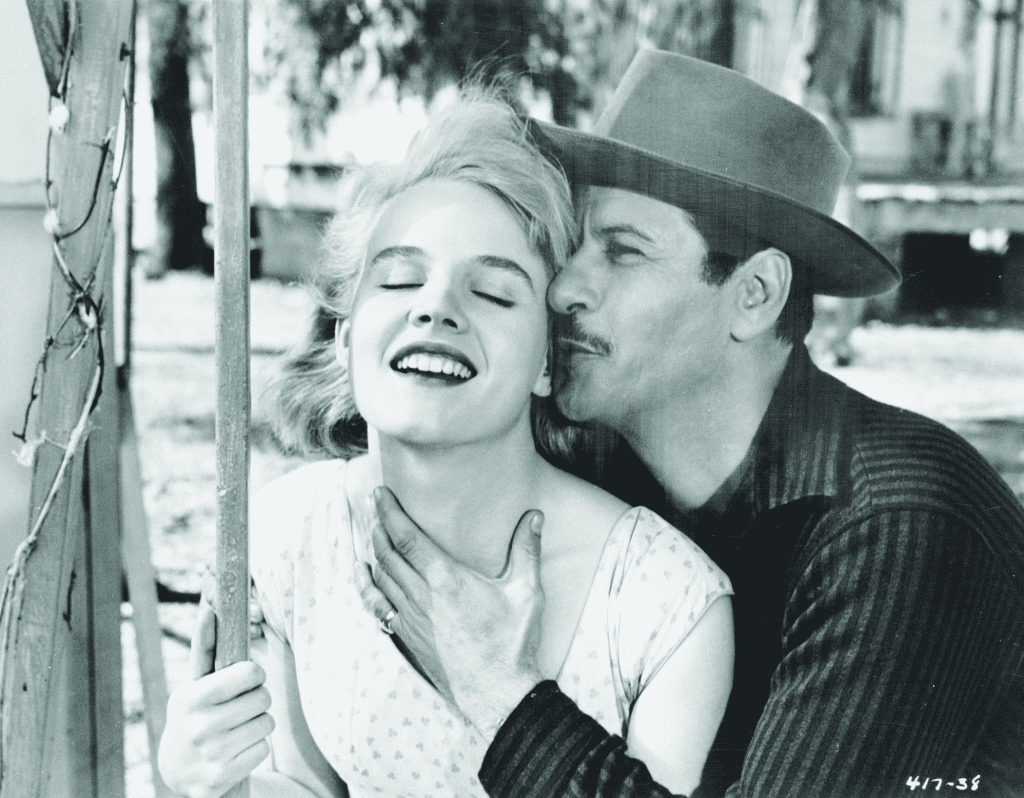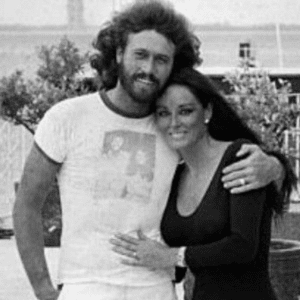
Carroll Baker, one of Hollywood’s most daring and accomplished actresses, cemented her place in cinematic history with her unforgettable role in “Baby Doll” (1956). Directed by the legendary Elia Kazan and written by Tennessee Williams, the film pushed boundaries in storytelling and performance, tackling themes that were considered taboo in the 1950s. Baker’s portrayal of Baby Doll Meighan, a complex and layered character, elevated her to international stardom and earned her an Academy Award nomination. Her performance remains one of the most iconic in Hollywood history, a testament to her talent and fearlessness as an actress.
When “Baby Doll” hit theaters in 1956, it caused an uproar. Based on Tennessee Williams’ one-act play 27 Wagons Full of Cotton, the film explored themes of power, manipulation, and desire. Carroll Baker starred as Baby Doll, a childlike young woman married to an older, domineering husband, Archie Lee (played by Karl Malden). The plot thickens with the arrival of a rival, Silva Vacarro (Eli Wallach), whose presence threatens to upend Baby Doll’s fragile world.
The film’s daring content, including its provocative imagery and innuendos, earned it both critical acclaim and condemnation. The Catholic Legion of Decency famously labeled it “immoral,” leading to bans in several cities. Yet, the controversy only added to its allure, drawing curious audiences and cementing its place as a groundbreaking piece of cinema.
Carroll Baker’s performance as Baby Doll was nothing short of extraordinary. She managed to portray a character who was both innocent and cunning, naive yet aware of her own power. One of the film’s most iconic moments—Baby Doll reclining in a crib, sucking her thumb—perfectly encapsulated the tension between childlike vulnerability and burgeoning self-awareness. Baker’s ability to navigate such a complex role with authenticity and poise was a revelation.
For her work, Baker received an Academy Award nomination for Best Actress, an incredible achievement for an actress relatively new to Hollywood. This recognition not only validated her talent but also solidified her status as one of the most promising stars of her generation.
The collaboration between director Elia Kazan and playwright Tennessee Williams was a major factor in the film’s success. Kazan’s meticulous direction brought out the best in his actors, allowing them to fully inhabit their roles. His guidance helped Baker deliver a performance that was both nuanced and impactful.

Williams’ screenplay provided a rich foundation for Baker to explore. Known for his ability to create complex, deeply flawed characters, Williams gave Baby Doll a voice that resonated with audiences. His willingness to tackle controversial subjects made the film a bold and timeless work of art.
“Baby Doll” was more than just a film—it was a cultural flashpoint. The debates surrounding its morality and artistic merit highlighted the tension between traditional values and evolving societal norms. While some critics decried its provocative content, others hailed it as a masterpiece that pushed the boundaries of what cinema could achieve.
For Carroll Baker, the film was a turning point. It established her as a fearless actress willing to take risks, setting her apart from her contemporaries. Her performance paved the way for future actresses to embrace challenging roles and explore complex themes.

Following the success of “Baby Doll,” Carroll Baker became one of Hollywood’s most sought-after actresses. She starred in a variety of films that showcased her versatility, including Something Wild (1961) and How the West Was Won (1962). Her ability to seamlessly transition between genres solidified her reputation as a dynamic performer.
In the late 1960s, Baker took a bold step by moving to Europe, where she found creative freedom in international cinema. This decision allowed her to explore new opportunities and avoid the typecasting that often plagued actresses in Hollywood.

Carroll Baker’s role in “Baby Doll” remains a benchmark for bold, fearless acting. Her willingness to tackle a controversial and demanding role set a precedent for future generations of performers. The film’s continued relevance is a testament to Baker’s talent and the groundbreaking storytelling of Kazan and Williams.
Carroll Baker’s performance in “Baby Doll” was a defining moment in her career and a turning point for Hollywood. Her fearless portrayal of a complex character challenged societal norms and redefined what was possible in film. Today, her work continues to inspire actors and filmmakers, proving that true artistry knows no boundaries.


